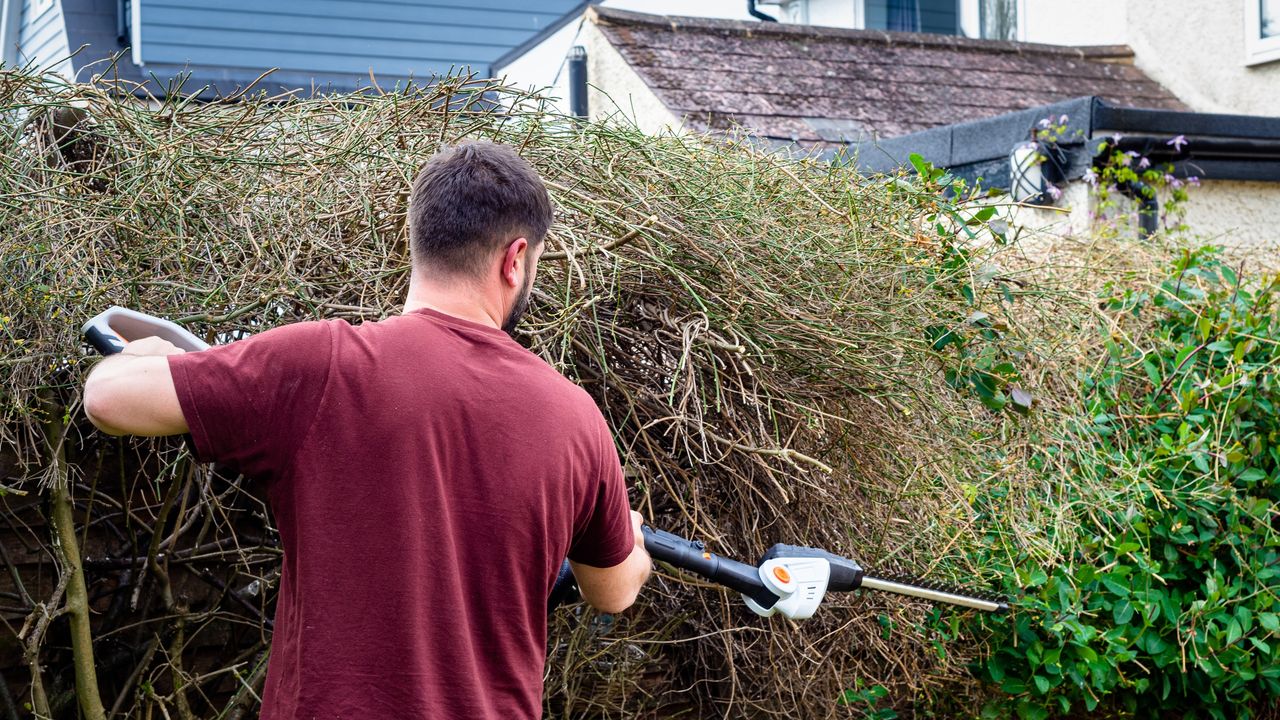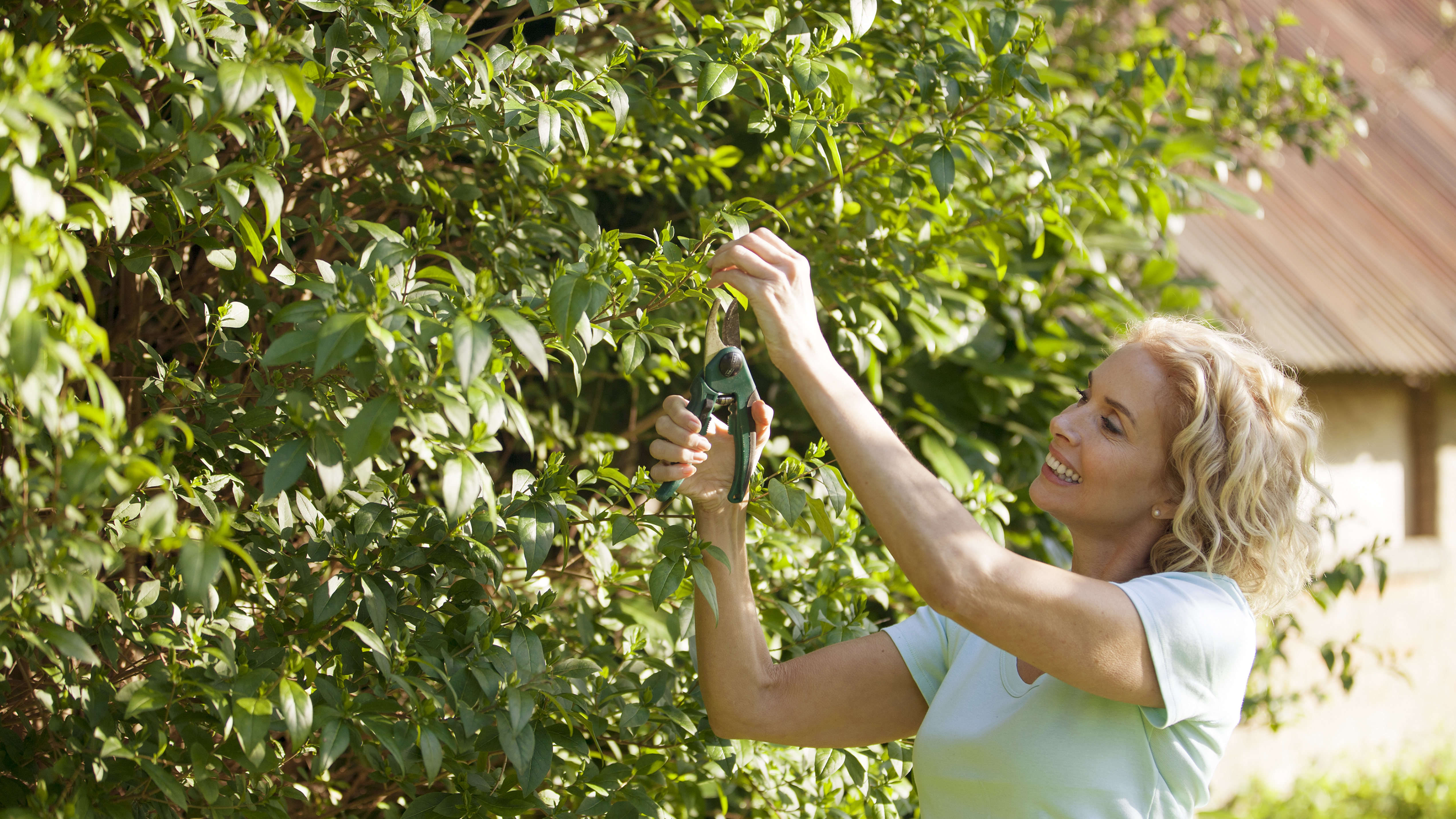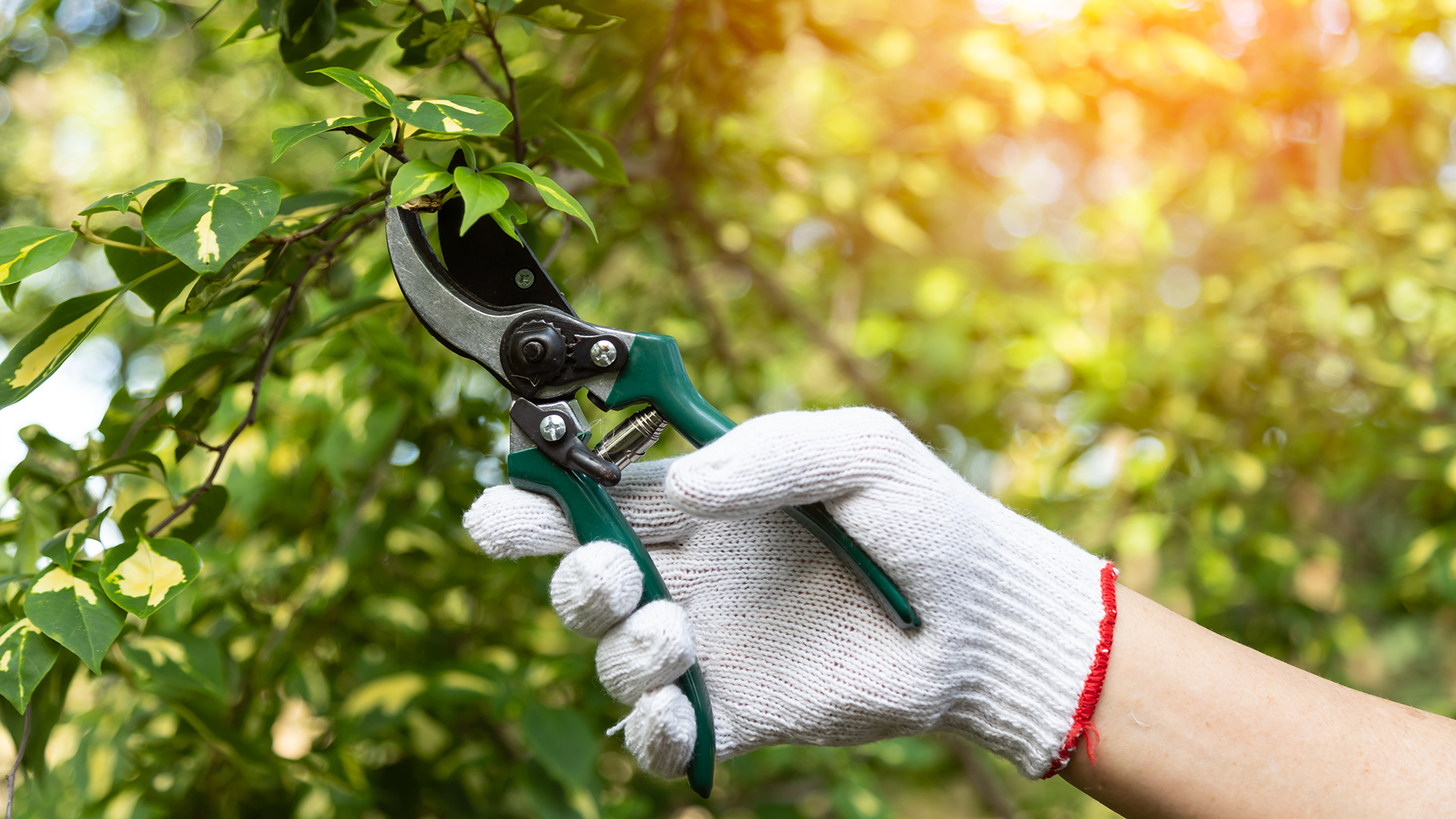
Are your neighbors' overgrown bushes invading your backyard? If you’re tempted to get out your best pruning shears or trimmers, and take matters into your own hands, you might want to think again.
Similar to knowing your legal rights for painting shared fences, you’ll need to know the rules for trimming your neighbors' overgrown bushes if it encroaches onto your property. This is especially the case if you want to avoid any neighborhood disputes.
Fortunately, we have the experts at hand to tell us our legal rights and what the best practices are for cutting back your neighbors' bushes. So before you start pruning away, here's what the pros recommend.
Am I allowed to cut my neighbors' overgrown bushes?

The general consensus from legal experts is the answer is yes, but you can only trim what lies beyond your property line.
“According to the law, you generally do have the right to prune overhanging branches or shrubs onto your property, but not to the property line,” states David Cohen, a Real Estate Lawyer at Cohen Property Law Group.
“The key thing is that you are not entitled to trespass on your neighbor's property without permission, and you are not permitted to harm the plant in a way that diminishes its health or value. Effectively, you can trim the part of the plant that encroaches on your property, but beyond that it's still your neighbor's responsibility.”
In addition, you’ll need to check your local ordinances or state legislation before planning on cutting bushes back. This is because there are strict requirements for specific trimming of trees or bushes along boundary lines in certain regions.
“While tree ordinances vary among municipalities, generally under New York law, if a tree's branches extend over one's property line, then the property owner has the right to remove those overhanging branches up to his/her property line,” adds Richard Klein, Partner and co-chair of the Real Estate practice at Dorf Nelson & Zauderer.
“However, some trees are considered rare or endangered, and therefore protected under State law. If the tree (or shrub, bush or flower) in question falls under 9-1503 of the Environmental Conservation Law, removal will require the neighbor's permission and might require obtaining a permit from the municipality.” So be sure to check your state laws.
Politely ask your neighbor

Of course if you want to avoid any disputes, the best approach is to politely ask or talk to your neighbor prior to any pruning work on their overgrown bushes.
“I usually advise approaching the situation with a friendly conversation, explaining that hanging branches or shrubs are affecting your garden, light, or maintenance,” agrees Cohen.
“You can inquire if they mind trimming the plants themselves, or if so, then ask them to permit you to do it. It helps to arrive at the discussion in a cooperative mood rather than an attacking mood, and sometimes even suggesting the time when they can cut together can save misunderstandings.”
Additionally, if you didn’t want to take on the responsibility of trimming away at the offensive bushes in case anything goes wrong, you could hire a professional to take on any liability.
“Your property and everything that naturally extends into it belongs to you,” states Ben Ashton, CEO of Rocky Mountain Turf. “That being said, if you trim those bushes so heavily that you damage them, your neighbor could have a case against you.”
So you may want to stay on the side of caution.
What’s the best practice for cutting back a shared bush?

If you do wish to take matters into your own hands however, what is the best method for trimming encroaching bushes?
“The best that can be done is prune with care using the proper tools, like hand pruners or hedge clippers for small branches and shrubs,” advises Cohen. “Always make cuts at natural seams, like where a limb meets the central stem, to not stress the plant. Don't cut so much, especially at the wrong time, because this could harm the plant and even lead to conflicts.
"Finally, it is respectful to clear all trash and ensure that the cut shoots are gotten rid of properly, which shows respect for your property and that of your neighbor.”
So, if you want to avoid any neighborhood disputes (or damaged shrubbery), keep these rules in mind. Also, if you still want to maintain a level of privacy, check out these 7 plants will create more privacy in your backyard.
Follow Tom's Guide on Google News and add us as a preferred source to get our up-to-date news, analysis, and reviews in your feeds. Make sure to click the Follow button!







